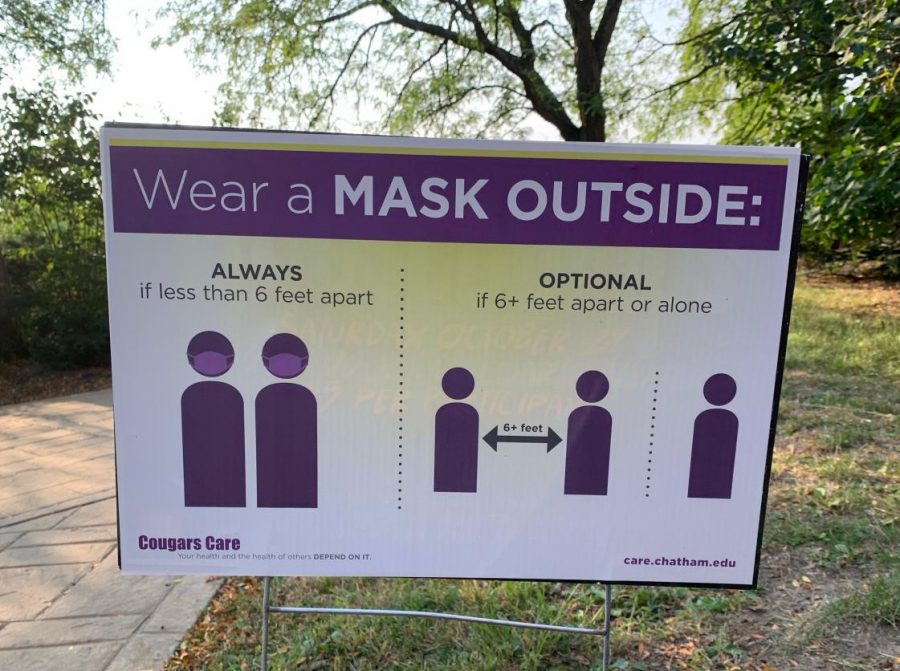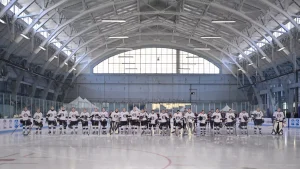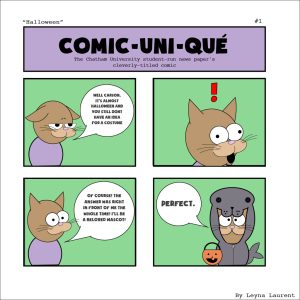Chatham’s Immunocompromised Struggle with Student COVID-19 Accountability
September 25, 2020
Since March 2020, COVID-19 has rendered our day-to-day lives forever changed. Our culture is different now and, while this difference proves more and more exhausting each week we spend in quarantine, there has been a new surge in efforts to lift COVID-19 restrictions both informally and legislatively.
As of Sept. 14 2020, WHTM Pittsburgh reported that “Butler, Green, Fayette, and Washington [counties] previously filed a lawsuit claiming that Wolf’s closing of non-life-sustaining businesses and other restrictions during the COVID-19 pandemic were unconstitutional” and that federal Judge William Stickman, a Trump appointee, ruled in the counties’ favor. Should Governor Wolf’s appeal fail, this ruling means that businesses like hair salons, movie theaters, and other nonessential establishments would reopen, causing another surge in COVID-19 cases.
Judge Stickman argues that the population of Pennsylvania “cannot accept the new normal” under the US Constitution yet understands none of what this new normal is aimed to achieve. Throughout the discussion about the reopening of states, one subset of people is continuously overlooked: the immunocompromised.
The National Cancer Institute defines being immunocompromised as “having a weakened immune system…[and] a reduced ability to fight infections and other diseases.” This state can arise via certain medications and treatments as well as autoimmune disorders like diabetes and arthritis.
Being immunocompromised is concerning enough without the onset of COVID-19. Yet, combined with the pandemic, people who fall into this group are forced to make even more inconvenient and consequential choices for the sake of their health. Their social interactions are even further limited, their employment more harshly regulated (if not abandoned in fear of infection) and, like in my case, their schooling environment demands mass alterations.
I am an immunocompromised person due to a rare autoimmune disorder I have lived with since the early 2000s. I understand the precautions I must take to ensure my health. I sacrificed a socially and financially lucrative summer for my well-being and the well-being of others.
I am fearful for Judge Stickman’s proposed “return to normal” as I feel that my health would inevitably suffer. I feel similarly as a Chatham student, like non-immunocompromised people are not reciprocating nor understanding my efforts in an attempt to preemptively return to their normal prior to COVID-19.
Chatham University especially needs to confront our collective attitude of bending the rules due to our unique circumstances. Due to our small size, there is an assumption that we are at a lower risk for contracting the virus. The supposition follows that compared to Pitt or CMU, we house less students and, therefore, less chances for contamination.
This attitude is evident in a campus-wide passivity toward wearing masks; frequently students can be seen traveling across Shadyside campus with their masks tucked underneath their chin or propped below their nose, which renders the garment ineffective. Additionally, social media is often plastered with inside looks into gatherings that seem to overlook social-distancing guidelines.
Thus, this line of thinking is both selfish and ignorant. It does not account for the plethora of students, faculty and administration who engage in the Chatham community each day as immunocompromised people.
Some students’ nonchalance regarding COVID-19 on campus is enforced by Chatham’s past and current policy decisions about social distancing and virus transmission. Chatham denied students the guaranteed option for all virtual or online courses without medical documentation that would subsequently be sent to OAAR for approval. This policy ignores students that may come in contact with peers who are immunocompromised either at school, work or their home environment. With this decision, Chatham opened the door for an increased number of asymptomatic carriers to enter our community.
Additionally, on Sept. 21 Residence Life issued a survey via email to all students living on campus asking about the current guest-policy. As the policy currently stands, only residents living in the same building may visit one another. The survey, however, addressed a potential change that would allow for residents of other campus housing locations to intermingle. This change would prove disastrous not just for immunocompromised folks residing in on-campus housing, as we rely on this strict policy for guaranteed safety, but for the entire student body as contact tracing measures would only grow more difficult due to increased inter-housing traffic.
Chatham University is in a unique situation following the onset of COVID-19. The circumstances of our campus and student body are different when compared to neighboring schools. However, giving in to students’ displeasure regarding strict social policies only furthers a culture of passivity and lenience which in turn neglects Chatham’s most vulnerable groups. The school and its students should remember that the less seriously we take COVID-19 and its accompanying struggles, the longer it’s here to stay.








